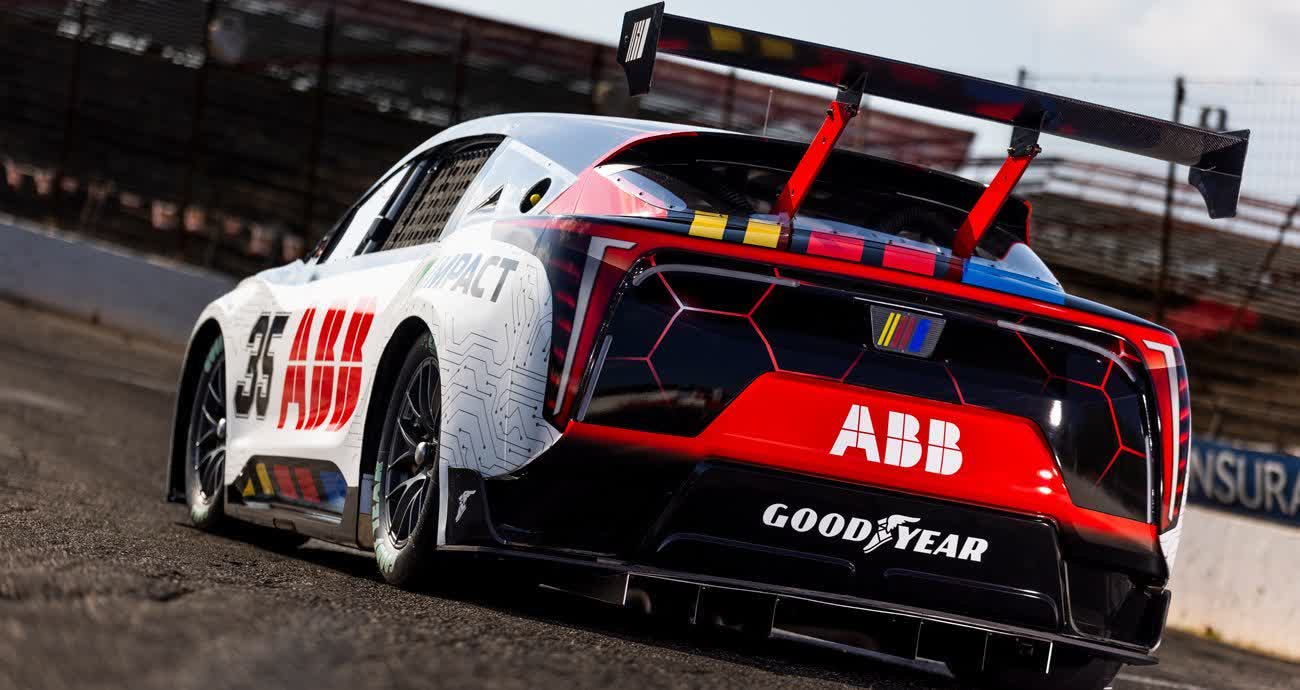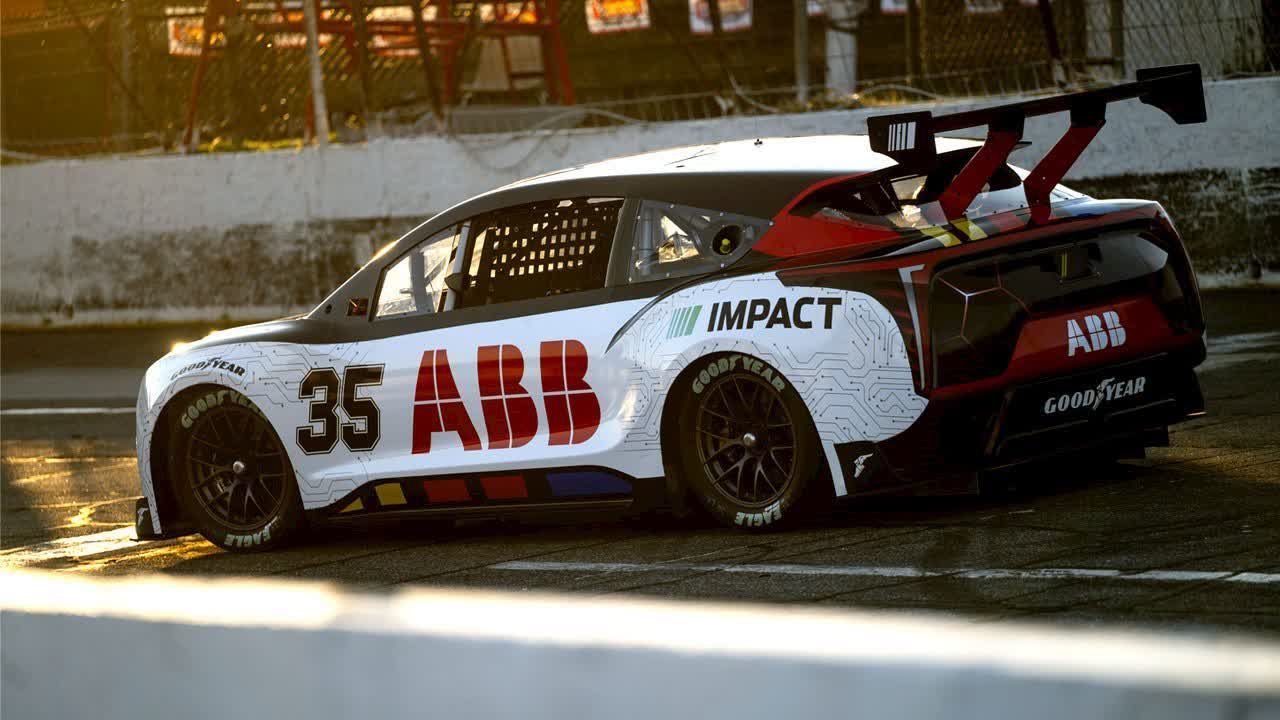Why it matters: When someone thinks of NASCAR, it's definitely not EVs or sustainability that first comes to mind, but the organization wants to change that perception with its new Impact program. The prototype EV, revealed in Chicago this past weekend, is a testament to the company's forward-thinking with its foot on electric gas.
NASCAR revealed its EV prototype racer in Chicago this weekend, moving the needle forward to the future of EV racing. This is the first product out of the Electrification Innovation Partnership between NASCAR and the Swedish robotics and electronics company, ABB. NASCAR's OEM partners Chevrolet, Ford, and Toyota were also involved in the prototype's design.
This all-wheel-drive prototype EV (no catchy name yet) comprises three STARD UHP 6-Phase motors that can generate over 1,300 hp. It's a lot of power to move the 4,000-lb flax-based composite chassis, which includes a 78-kWh liquid-cooled battery.
#NASCAR's prototype EV car takes off from a standing start on a demonstration lap at Chicago pic.twitter.com/yRbWdCURsG
– Dustin Long (@dustinlong) July 7, 2024
By comparison, current NASCAR vehicles weigh 3,200 lbs (without driver or fuel) and are limited to 510-670 hp, following a restriction change made by the association in 2022. The STARD UHP motors are also featured in the Ford F-150 SuperTruck EV.
This announcement shows NASCAR's commitment to its Impact program, a series of strategic initiatives for sustainability and community engagement. NASCAR is using its 2022 total emissions report, which measured total carbon emissions across its operations, as a baseline. The goal is to achieve net-zero operating emissions by 2035.
NASCAR Senior VP and Chief Impact Officer Eric Nyquist said, "ABB is an industry leader and will help in efforts to decarbonize our operations as we pursue achieving net-zero operating emissions over the next decade."

The company plans to source 100% renewable electricity for all facilities and racetracks by 2028, including on-site EV charging stations. This could also be another partnership goal with ABB, which deployed some EV charging stations in South Carolina back in 2023.
NASCAR's initiative toward a more sustainable future highlights a significant shift in its traditional approach, but this doesn't mean they are giving up gasoline. "The combustion engine is our core product, and that will remain so for the foreseeable future," said Riley Nelson, NASCAR's head of sustainability.
